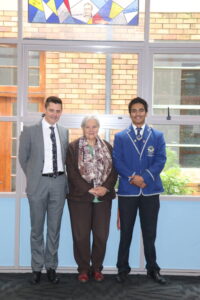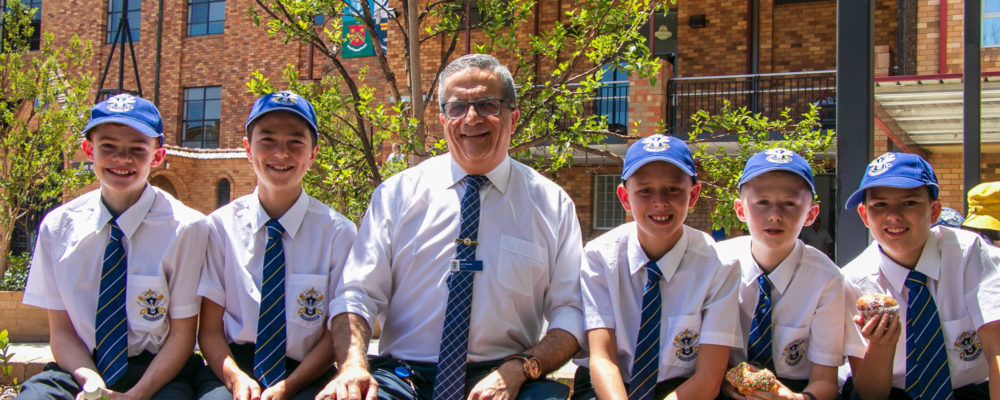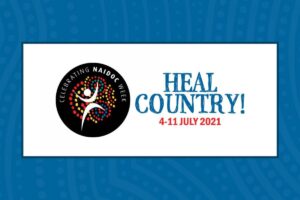Dear parents and carers,
I hope that all families had a smooth transition back to school last week and have settled into to good routines. We have been impressed by the attitude that the boys have displayed for the start of semester.
2022-2024 Strategic Directions
The College is about to commence our process of writing our next three-year strategic directions documents. An important component of determining our key priority areas for the next few years is the use of student, parent and carer, and staff feedback. The College has engaged Michael Elphick to facilitate the distribution, collation and analysis of perception surveys for these three groups.
During the next week or so parents and carers should receive an email with a link to the 2021 Parent and Carers Survey. Please take the time to complete this survey when it arrives. Your feedback, as well as feedback from students and staff, will provide crucial data about various aspects of the College, and will assist in determining our priority areas for improvement over the next few years.
2021 NAIDOC ASSEMBLY
The 2021 NAIDOC Assembly held last Friday was a wonderful celebration of Aboriginal and Torres Strait Islander histories and cultures. Students broke open the 2021 NAIDOC Week theme, ‘Heal Country’ and House Captains presented the six spirit guides for our six houses. The spirit guides were a 2020 initiative. Every house is now recognised not only by their house crest, but also by their chosen spirit guide. We are striving to promote the idea of kinship within the houses and promote Aboriginal and Torres Strait Islander values and customs in the spirit of reconciliation.
We were fortunate to have Ms Pat Anderson give a passionate and informative presentation at the assembly. Ms Anderson is an Alyawarre woman, and St Edmund’s family member, known nationally and internationally as a powerful advocate for the health of Australia’s First Peoples. She was appointed Officer of the Order of Australia in 2014 for distinguished service to the Indigenous community as a social justice advocate, particularly through promoting improved health, and educational and protection outcomes for children. Ms Anderson spoke about history and culture, injustices and impacts of the past, as well as our assembly theme, reconciliation and Heal Country.

The St Edmund’s College Reconciliation Action Plan (RAP) was outlined in the second half of the assembly. The RAP was developed in 2020. Some of the key aims in the College RAP include:
- To acknowledge and recognise the contributions of Aboriginal and Torres Strait Islander peoples
- To develop relationships between St Edmund’s and the Ngunnawal and Ngambri people, and other community members
- To create and nurture an environment where Aboriginal and Torres Strait Islander cultures are experienced and valued by all students and members of our school community
- To provide opportunities for Aboriginal and Torres Strait Islander students to celebrate and embrace their heritage.
I would like to thank Ms Ashleigh Kerin and the students involved in preparing and presenting the assembly. The following passage was delivered at the beginning of the assembly by Max Page and Charlie Rigney. It is taken from the following website: https://www.naidoc.org.au/get-involved/2021-theme
So, what is NAIDOC week?
NAIDOC week celebrations are held across Australia each July to celebrate the histories, cultures and achievements of Aboriginal and Torres Strait Islander peoples.
This year’s theme is Heal Country. Country is inherent to our identity.
It sustains our lives in every aspect – spiritually, physically, emotionally, socially, and culturally. It is more than a place.
When we talk about Country it is spoken of like a person. Country is family, kin, law, lore, ceremony, traditions, and language. For Aboriginal and Torres Strait Islander peoples it has been this way since the dawn of time.
Through our languages and songs, we speak to Country; through our ceremonies and traditions we sing to – and celebrate Country – and Country speak to us. Increasingly, we worry about Country.
For generations Aboriginal and Torres Strait Islander people have been calling for stronger measures to recognise, protect, and maintain all aspects of our culture and heritage for all Australians. We have continued to seek greater protections for our lands, our waters, our sacred sites and our cultural heritage from exploitation, desecration, and destruction.
We are still waiting for those robust protections.
Healing Country means hearing those pleas to provide greater management, involvement, and empowerment by Indigenous peoples over country.
Healing Country means embracing First Nation’s cultural knowledge and understanding of Country as part of Australia’s national heritage. That the culture and values of Aboriginal peoples and Torres Strait Islanders are respected equally to and the cultures and values of all Australians.
Destruction and desecration of our sacred lands or ancient sites – some of the oldest human occupation sites on the planet – is an enormous loss for both our nation and the world.
But to truly heal Country we have more to do.
Our lands will continue to burn from bushfires, droughts will continue to destroy our livelihoods, without using traditional practices that have protected this country for centuries.
For generations, our Elders and communities have advocated, marched and fought for substantive institutional, structural and collaborative reform.
The aspirations of Aboriginal and Torres Strait Islander peoples are the culmination of generations of consultation and discussions among our nations on a range of issues and grievances.
Healing Country means finally resolving many of the outstanding injustices which impact on the lives of our people.
It must be a fair and equitable resolution.
Fundamental grievances will not vanish. In the European settlement of Australia, there were no treaties, no formal settlements, no compacts. Aboriginal and Torres Strait Islander people therefore did not cede sovereignty to our land. It was taken from us. That will remain a continuing source of dispute.
To Heal Country, we must properly work towards redressing historical injustice.
While we can’t change history, through telling the truth about our nation’s past we certainly can change the way history is viewed.
After 250 years, our children and our future generations deserve better.
For generations we have repeatedly called for just recognition of our right to participate on an equal basis in economic and social terms.
Yet such participation cannot be successful unless, first, there is formal recognition that Indigenous people have been dispossessed and, second, definite, specific steps are taken to redress the grave social and economic disadvantage that followed that dispossession.
Healing Country is more than changing a word in our national anthem – it is about the historical, political, and administrative landscapes adapting to successfully empower and celebrate Aboriginal and Torres Strait Islander communities, nations, and heritage.
We are all looking for significant and lasting change.
We cannot afford to let pass the very real opportunity that now presents itself for reform based on a fundamental change in the relationship Australia has with Aboriginal and Torres Strait Islander peoples.
Heal Country
Ian Garrity
Principal (Acting)
Christus Lux Mea


